Benefits of social farming and how farmers can get involved
Care farming can bring diversification benefits for farmers who want to take on a social purpose and help bring extra income to rural economies.
Also known as social farming or green care, the term refers to the provision of on-farm activities for people with care needs, including neurodivergence such as autism and learning disabilities.
We profile some social farming initiatives, including signposting for farmers who want to find out more.
See also: Neurodiversity in farming takes centre stage at roundtable
Pennyhooks Farm Trust
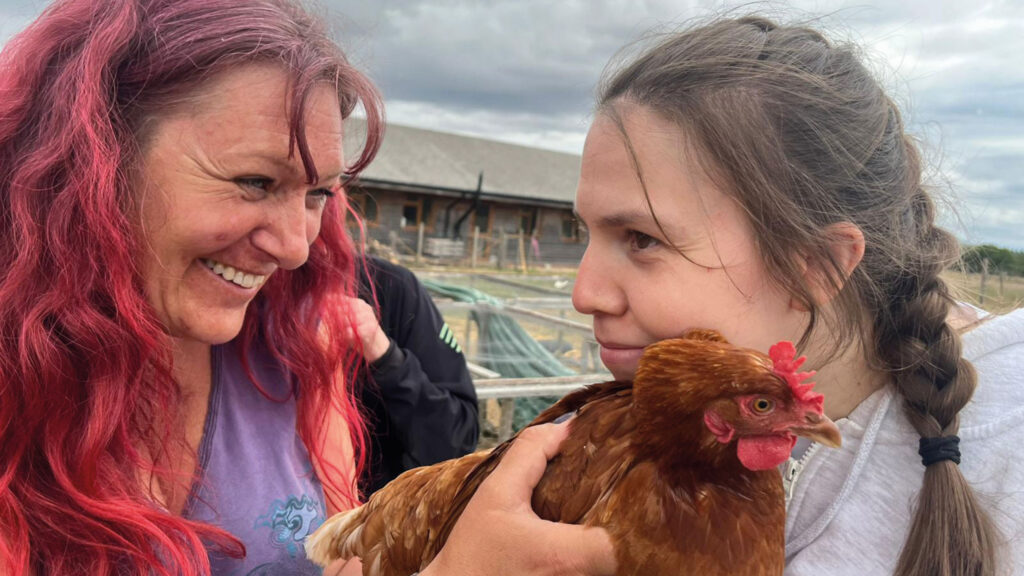
Marie Read with a student © Pennyhooks Farm Trust
Pennyhooks is a 40ha organic beef and grassland farm, which provides learning opportunities for autistic adults, many of whom are non-speaking.
It offers a much-needed solution to the lack of provision for people with complex autism once they leave school.
The charity’s founder, Lydia Otter, who grew up on the Oxfordshire farm, began farm visits when she was teaching autistic children more than 30 years ago.
Today, Pennyhooks provides bespoke support for autistic adults to gain practical skills and a sense of achievement through work-based activities and to forge social connections through a shared purpose.
This is led by autism centre manager Emma Masefield, farm managers Dominic Hill and Richard Hurford, and an experienced care staff team.
Every student has one-to-one support as they learn farm skills such as rolling out straw bales and feeding the cows.
They are taught woodwork, and build planters and birdhouses that are sold in the farm shop, and take accredited courses developed with the Open Colleges Network.
They also carry out conservation work such as hedge planting, thistle digging and species recording.
The farm’s aim is to “level the mountains that autism can bring” to allow students to thrive.
Emma’s Master of Education dissertation about movement differences in autism found that the way activities are set up can have a profound impact.
She gives the example of a student who needs to spin and move in arcs being able to incorporate these movements into tasks.
Murray, who is non-verbal, wrote this: “Pennyhooks provides me with work in a worry-free environment. I am my true self when I am there. I am amazed in myself doing skills that have really useful meaning.”
With plans to build supported living flats for six people on the farm when they have raised enough money, Pennyhooks continues to grow.
Lydia says: “We have found that the farm is a resource that can make a difference to our clients’ lives and we want to share it.”
Pennyhooks has a course for farmers who want to provide a similar service, and Lydia would like to see financial incentives for farms.
“It’s the perfect circle: the farm helps look after the students and the students help look after the farm,” she says.
Social Farming Ireland
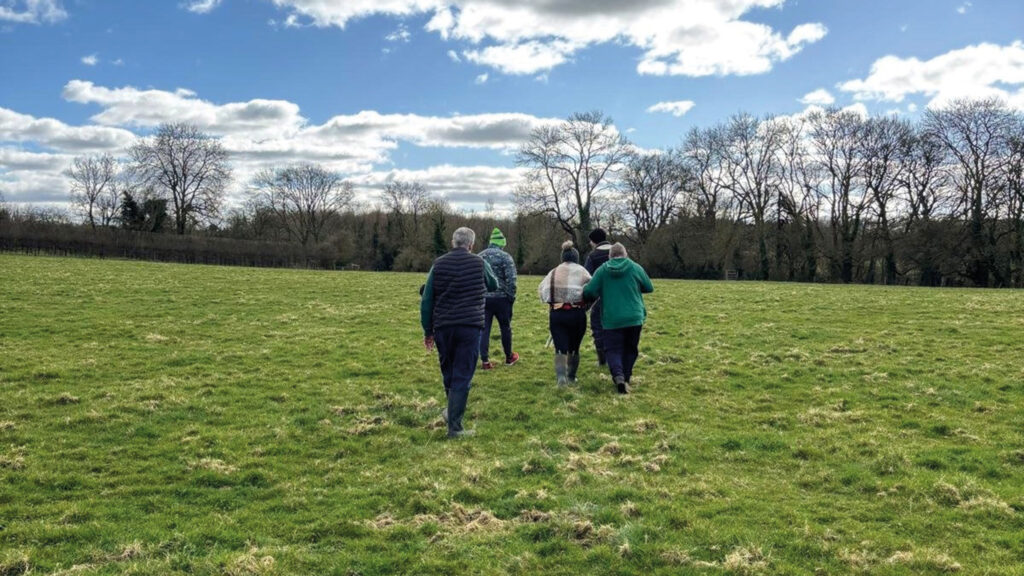
Social Farming Ireland offers structure and social connection © Social Farming Ireland
The network of social farms across Ireland has grown from seven to about 160 over the past 10 years after a successful pilot led to funding from the Irish Department of Agriculture.
Social Farming Ireland manages the national network by supporting and training farmers, and matching individuals who need support to farms.
Research and policy officer Mary Brennan says participants have a chance to engage in meaningful activities in a supportive but informal environment.
“The activities on the farm also give a sense of routine and structure as well as social connection,” she says.
Individualised support plans set goals for the placement.
Those could be skills sampling, progressing towards further training or work, developing social connections, increasing confidence, or improving physical or mental health and wellbeing.
It is not an employment placement and the work is appropriate for each person’s abilities.
Significantly, farmers are paid to provide the support placements – about €80/day (£69/day) a person.
Placements are typically with two or three people, one day a week for 12 weeks.
But the payment is rarely the motivating factor: “The sense of wellbeing stretches to the farmer. You are doing something for your community – something that is bigger than you,” says Mary.
Camphill Village Trust
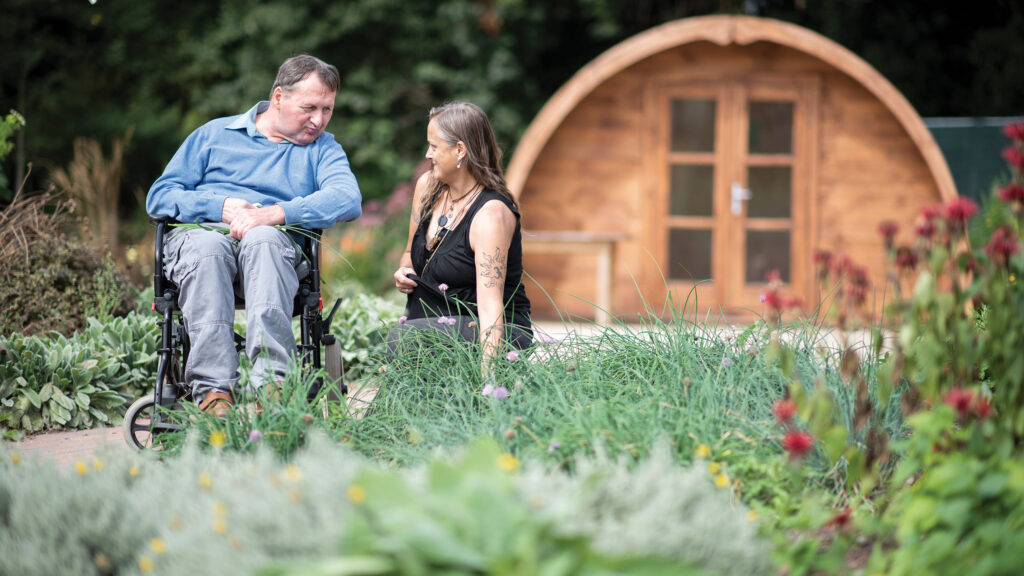
Nature-based therapy © Camphill Village Trust
Camphill Village Trust is harnessing the power of nature to give people with learning disabilities, autism and mental health challenges access to opportunity, purpose and belonging.
The trust was established more than 70 years ago and now encompasses 10 diverse communities across England, from a 260ha dairy farm to community gardens.
At each site, the charity blends sustainable farming practices with nature-based therapy and skills development. It’s a model where the soil nurtures produce and communities.
Camphill’s head of natural environment, Robin Asquith, says the farming activities can be especially suited to neurodivergent people: “Farming is real, with real problems, real tasks and an end purpose.
“Animals don’t judge – they treat everybody equally and can bring out a different side to us.
“I have seen people who are non-speaking start engaging and talking with animals; it can be a powerful thing.”
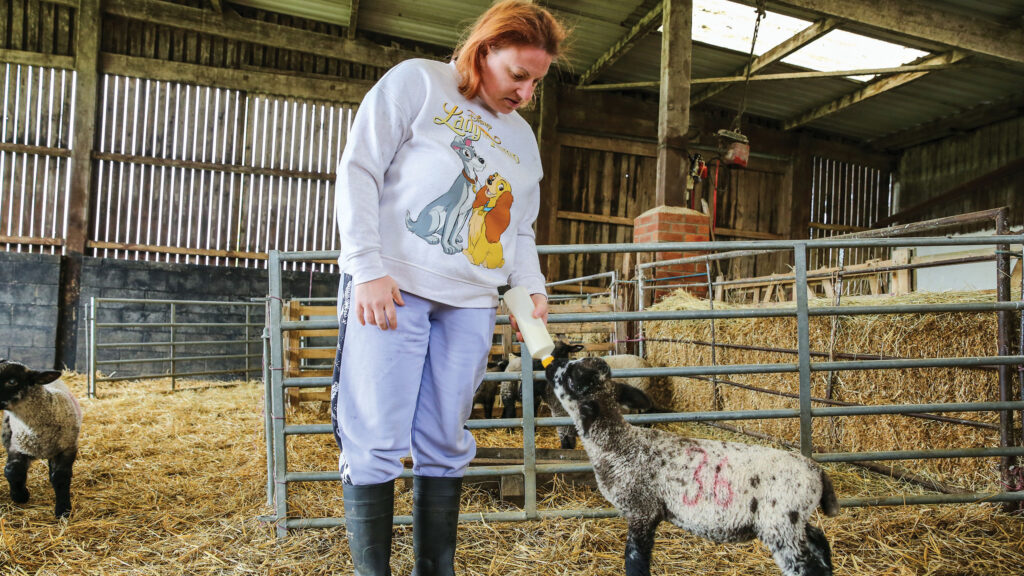
© Camphill Village Trust
The trust provides a range of options, from day visits to residential supported living, working with healthcare providers, social workers, local authorities and private clients to deliver additional care where needed.
Robin says: “Each person is recognised for who they are, and everyone works together as equals, contributing to purposeful and fulfilling work.”
Robin has found that some autistic community members excel in the dairy, following strict procedures around cleanliness and data recording.
He also says the predictable rhythms of farming can be therapeutic.
Having completed his Nuffield Scholarship on social farming, he has seen how it strengthens communities.
“Before mechanisation, farms were the social hub of communities, but that’s less so now.
“The way we support people on farms brings that back, which is important as farming can be isolating,” he says.
The trust has an emphasis on farm-to-fork and sustainability.
The produce grown and made on site is used in the charity’s shops and cafés, and all community members are encouraged to access the fruit and vegetables that they grow together.
“We are reimagining social care and designing an answer to a sector that is challenged. Nature, the environment, food and animals have a massive role to play in supporting people a bit differently – and a bit more meaningfully,” says Robin.
The Inclusive Farm
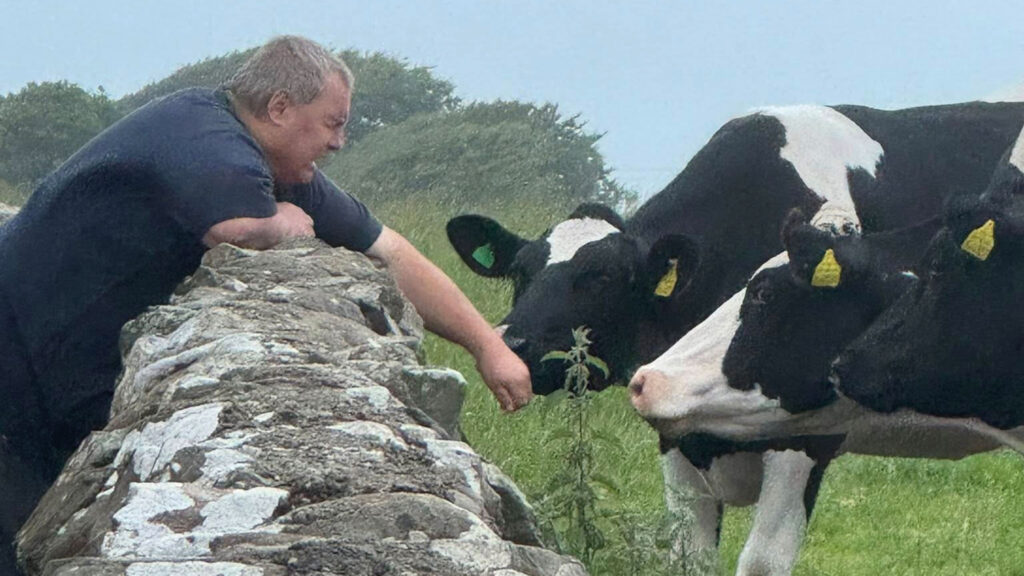
Mike Duxbury © The Inclusive Farm
Mike Duxbury is a man on a mission to break down the barriers that prevent people with disabilities from entering farming.
Despite losing his sight at the age of six, he has had a remarkable working life – both in farming and in industry – and he is proud to be the only blind man to build a livestock farm.
Six years ago, he and co-founder Ness Shillito created the Inclusive Farm in Buckinghamshire, which welcomes people with neurodivergence and physical disabilities to build confidence and develop work skills to see if farming is for them.
They might spend a day, a week or longer on the farm. The pair are now building another Inclusive Farm in Scotland and have plans to create residential opportunities.
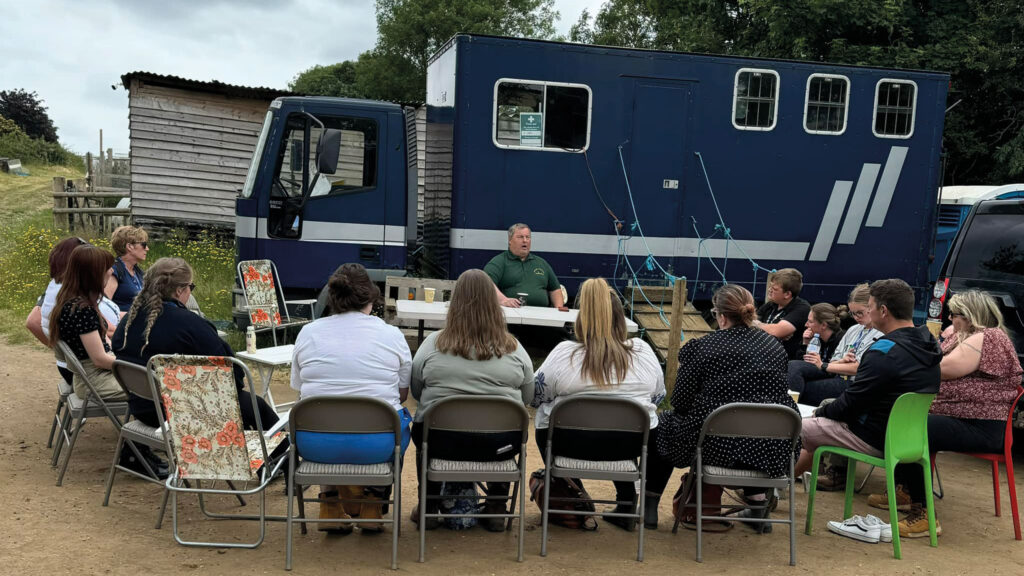
The Inclusive Farm helps individuals develop work skills © The Inclusive Farm
The farms provide a safe environment with adaptations including making things more tactile, audible signage and phone technology.
For people with autism, Mike says matching jobs to special interests can be a strategy that avoids overwhelm.
His prime focus is on ability rather than disability. He found that people often focused on what he couldn’t do when he was growing up.
He says: “Let people be themselves – don’t judge them on what you think they can do but what they can do.”
Get more information
- For farmers who want to run safe and engaging on-farm care farming activities: Access to Farms Countryside Education Visits Accredited Scheme (Cevas) managed by Leaf
- Camphill Village Trust
- Social Farms and Gardens Green Care Coalition Partnership
- Social Farming Ireland
- Pennyhooks Farm Trust: email pennyhooksfarmtrust@gmail.com
Level the Field
Our campaign, Level the Field, aims to make agriculture fairer, more equitable and more inviting for everyone.
By engaging people and organisations across our industry, Level the Field will champion inclusivity for the benefit of farm businesses and all who work in them.
The campaign kicked off in 2024, focusing on women in farming, and is now in its second year, focusing on neurodiversity.
See more on our Level the Field campaign hub.

